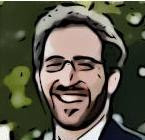WWMLKD
A veteran organizer asked me what we were rolling out for MLK. Any half decent organizer knows that it is a great opportunity to connect any issue you are working on to Martin Luther King Jr.'s legacy. Perhaps were MLK alive today he would have been with Ethan and me protesting the Darfuri genocide at the Sudanese embassy. Perhaps he would have been cleaning up a playground with a refreshing mix of white people and black people.
Today is a good day to remember what King was doing as he danced to the world of martyrs.
According to the King Center:
Dr. King was shot while standing on the balcony of the Lorraine Motel in Memphis, Tennessee on April 4, 1968. Dr. King was in Memphis to help lead sanitation workers in a protest against low wages and intolerable working conditions.As usual Wikipedia has a more detailed account:
Dr. King was shot while standing on the balcony of the Lorraine Motel in Memphis, Tennessee on April 4, 1968. Dr. King was in Memphis to help lead sanitation workers in a protest against low wages and intolerable working conditions.King wasn't singing kumbaya and he wasn't talking about how nice it would be if kids played together nor any of the other I Have a Dream quotes we hear non-stop. King was in Memphis because workers were getting exploited. He was there to support a strike and he was there to rally people and raise the tension with a bad boss (in this case the mayor).
We rarely hear about King's worker advocacy. He was so worker friendly as it happens. That the FBI investigated him stemming from ties to communist sympathizers.
We also rarely hear about King's anti-Vietnam stance. As you can imagine, it did little to dampen the red scare tactics.
We don't learn about his affairs with white women that came to light in books by Abernathy and Garrow.
No one ever mentions that King plagiarized about a third of his dissertation and several papers before that.
Actually i think a lot of people do cite the plagiarism and affairs, but mostly to discredit King's ideas. King was a truly outstanding leader, foibles and all. So many leaders are presented as superhuman. Many try to present a sanitized vision of MLK. This does us all a disservice.
We know we aren't perfect, and it is harmful to see so many "perfect" role models. From this we can conclude that since we are imperfect (and painfully aware of it) we can't do great things. Bullshit. Some of the greatest leaders, most insightful visionaries, and powerful agents of change were deeply flawed. MLK made lots of mistakes and also did a lot of good.
As we remember King's legacy, i encourage us to avoid the trap of narrowly listening to his message. He stood for more than little kids playing together. He spoke truth to power on foreign affairs, he risked being red baited. King spoke truth to power domestically, not just on integration issues but also on behalf of all working people. This is one important lesson, that we can, and must, speak up, and we should resist the fear that moves so many to silence. We may be attacked, we may be threatened, but hell, MLK had a round-the-clock FBI probe and he still worked tirelessly for justice. He was violently threatened and occasionally attacked. What could we have to fear that is remotely so terrible.
Another, perhaps equally important, part of King's legacy is that he did so many things we are also guilty of. He took shortcuts and hoped no one would notice. He didn't credit people the way he should have. He seems to have failed to live up to his own vision of black beauty when he chose to sleep with white women. We should be true to our visions, we should give credit graciously and at our own expense, and of course we should avoid shortcuts, but like he had his weaknesses, and did some troubling things, so do we. We make mistakes, sometimes quite big, sometimes not so bad, but that doesn't mean we can't do great things. We must. Take it from the Dr.
---
on the lighter side:
i wonder if they have Martin Luther Day in the heavily protestant countries. If so, do they have Martin Luther Days of Service where they pin demands on doors and clean up playgrounds?
---
ethan mentioned a finding reported in a WashPo article:
In a recent survey of college students on U.S. civic literacy, more than 81 percent knew that the Rev. Martin Luther King Jr. was expressing hope for "racial justice and brotherhood" in his historic "I Have a Dream" speech.
That's the good news.
Most of the rest surveyed thought King was advocating the abolition of slavery.
Labels: MLK


0 Comments:
Post a Comment
Subscribe to Post Comments [Atom]
<< Home